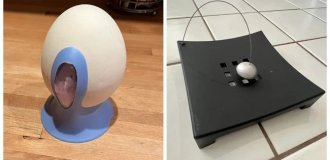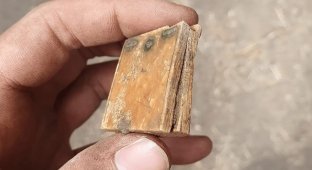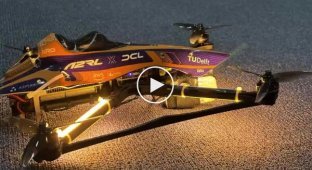Chinese scientists have created mosquito-sized reconnaissance drone (3 photos + 2 videos)
While Trump was dreaming about the Nobel Peace Prize, American B-2 aircraft were dropping bombs on Iranian nuclear facilities, and the Chinese comrades were presenting a new type of mosquito, oops, drones. It was the beginning of an ordinary Sunday in the summer of 2025. 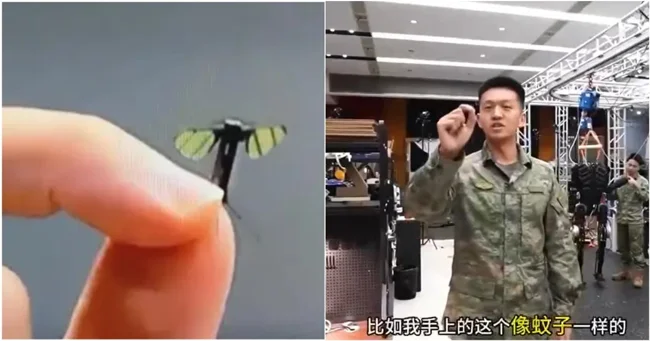
Professor Wang Jianmin carefully opened a small glass jar, taking out something barely noticeable. Inside the jar, a small object was slowly moving, sparkling with a metallic sheen in the dim light of the laboratory lamp. This was the latest fruit of the team's efforts - a miniature drone the size of a common mosquito, the pride of the National University of Defense Technology of China. 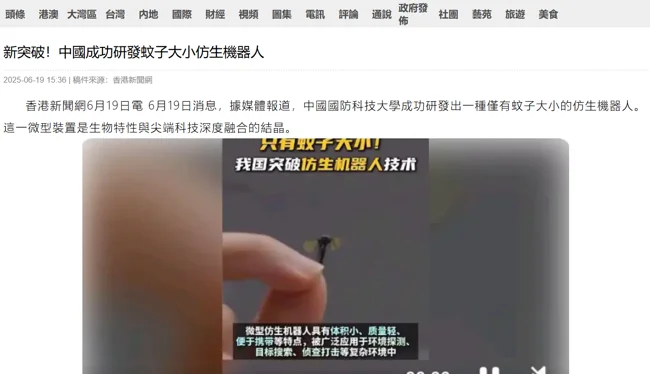
The team had been working on this little machine for months, combining the efforts of physicists, biologists, engineers and programmers. The device could hover in the air, covering distances of hundreds of meters and transmitting high-quality images to the operator on a compact device.
“Perfect for reconnaissance missions,” thought Wang Jianmin, looking at the micro-drone through a magnifying glass. The task of military scientists was very clear: to create a machine that is difficult to detect visually and acoustically, capable of discreetly observing enemy territory, transmitting intelligence in real time and returning home undetected.
The drone has been tested in real combat conditions, confirming its effectiveness and viability. The most important achievement of the developers was the creation of a fundamentally new movement mechanism. The linear drive allows converting electrical energy into powerful high-frequency vibrations that reproduce the effect of muscle contraction in living beings.
The flexible articulated device ensures the movement of the wings, simulating the natural flight of insects. This opens up broad prospects for further development of the project. The miniature reconnaissance aircraft is capable of not only covert surveillance, remaining undetected, but also acting as an active tool for suppressing enemy electronic devices.
Like tiny but deadly insects, they will be able to invade enemy space, disrupting their equipment and communications, leaving the enemy with only the illusion of calm and confidence.
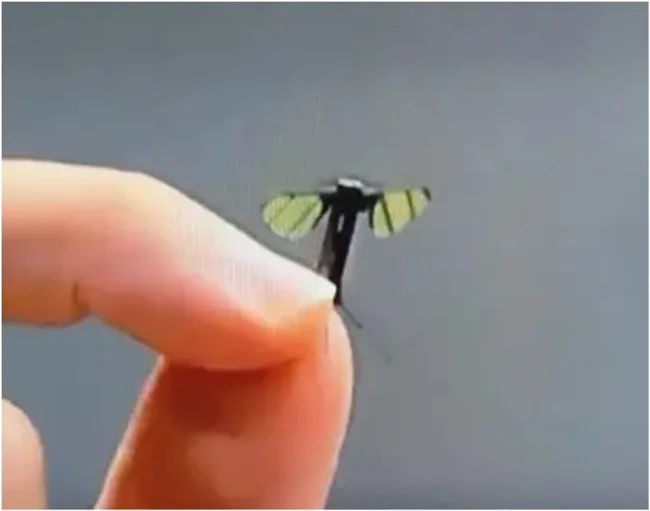
The fog was clearing over the Taiwan Straits, and the neighboring island was getting closer. Taipei was quiet and motionless, but its leaders knew: the future had already arrived, and the small Chinese mosquito was probably watching them right now.








